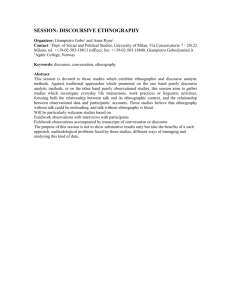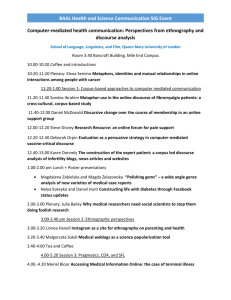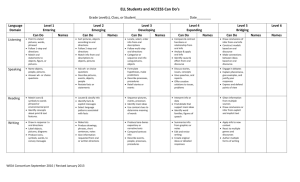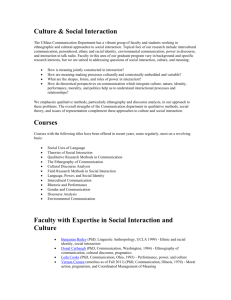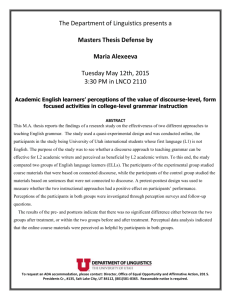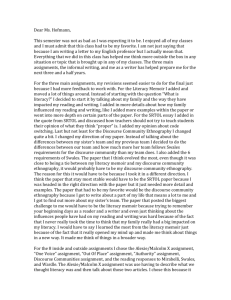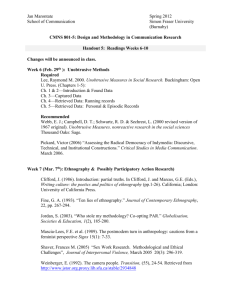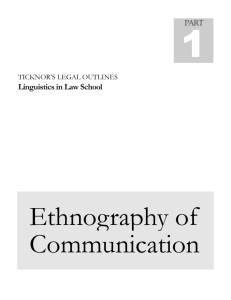Discourse community ethnography
advertisement
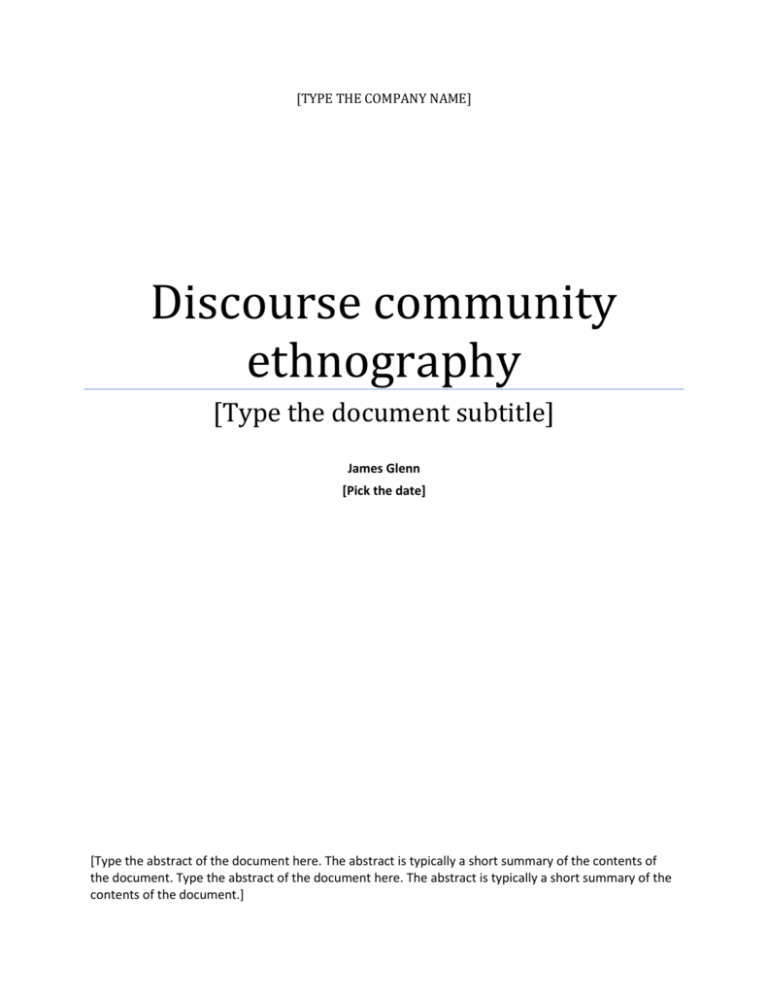
[TYPE THE COMPANY NAME] Discourse community ethnography [Type the document subtitle] James Glenn [Pick the date] [Type the abstract of the document here. The abstract is typically a short summary of the contents of the document. Type the abstract of the document here. The abstract is typically a short summary of the contents of the document.] 2 discourse community ethnography Discourse community is an ambiguous phrase as it entails non-definite terms and definite terms alike. However discourse communities are everywhere; including in a scholarly musical realm. A community any where will have its own genre of communication, common goals, mechanisms of intercommunication, and a specific lexis. Though there are a few more the key points to be observed are stated. In the musical community conventions are held, a certain language is created – an outsider would be lost as in any other community and there but there is no need to prove that the discourse exists. Communication throughout this community is a bit different from most others: talking or writing is not the only way to go about speaking. Sounds are used in place of spoken word in the case of instrumental communication. Though talking and writing is a big part of intercommunication, along with its unique lexis, it can be more prudent to strum rather than talk in certain situations. Musical scholars who compose songs for various reasons whether it be inspiration or for educational purposes, (for example, easy learning practices for beginners) use musical notation and abbreviated words or phrases to communicate to their audience. Some abbreviated terms are used more than others but this picture of “Amazing Grace” (John Newton) shows a few commonly used symbols that every single scholarly piece of music uses. 3 discourse community ethnography Along with these forms of communication, there are common goals shared by all that have joined the community. Students are marginally different than teachers, since their goals branch from the same tree. The goals expressed by this community is simply the desire to expand knowledge and utilize newfound knowledge in different ways. This goal can be branched to several different explanations. For example, the student's main focus is the advancement of knowledge for knowledge's sake and to achieve new skill. The teachers goal is similar yet reversed. An instructor's goal is not so much the desire to better themselves, but to better their students. A non-student, non-teacher member of the community who is considered an expert in the community (Jimmy Page is an example), has a slightly different goal. These individuals do not seek education's knowledge given in a school or passed down from a tutor. They look for 4 discourse community ethnography inspiration and derive abstract experiences and connections from their surroundings to enhance their own music. The role of the student applies to me most. I am an active memeber of a musical community. on a daily basis I strive to better my skills through practice and information. I am considered a novice, since I am relatively new to the community. However, on the other side of the spectrum, there are the "experts" who pass down knowledge from the top to the bottom. In every community, there is a need to have "high ranking" members of a community to teach newcomers how to function and pass their knowledge in a cycle of new-comers and old-goers. A community without this cycle will inevitably cease to exist. There can be no lineage without an heir, in other words. Lexicon is a huge part of the music community. People need to be able to communicate the phenomena created within each community and specific lexicon solves this problem. The musical community uses words derived from several different languages and the amount of different words could fill a dictionary, however, some randomly selected and common words can be explained. A cappella, Aria, and symphony are good examples. A cappella (pronounced ahcah-pell-a) is a word that describes a song or performance without instrumental aid. This gained popularity from old cathedral choirs in the Holy Roman Empire. An aria ( ah-ree-yuh), Italian for "air", is a piece of music written part of a larger piece, mainly used in operas. Lastly, a symphony (sim-foh-nee) is a large piece of music consisting of 3 or more "movements", or sections, that is usually orchestrated. Symphonic bands gained popularity in various places in history though a significant number of great composers came from the renaissance. 5 discourse community ethnography Discourse in the music community is plainly shown and has its own unique attributes that differentiates itself from other communities. Through studying the community by participating in it gives insight and can be only better understood by becoming an expert.
